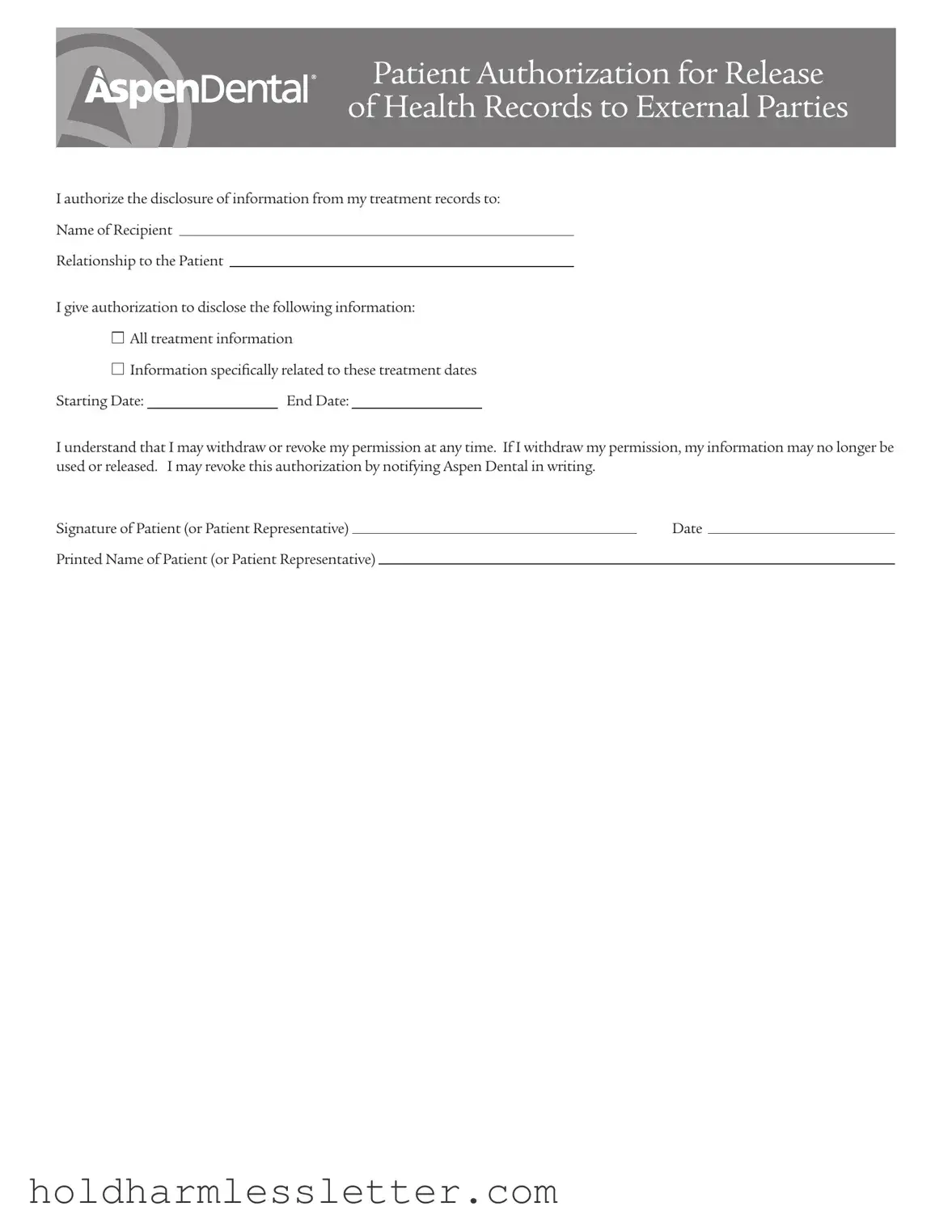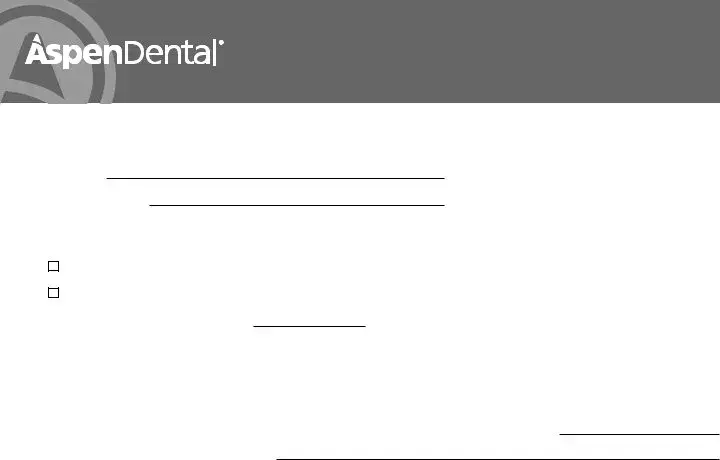A document closely related to the Aspen Dental Health Information Release form is a Medical Records Release Form often used in various healthcare settings such as hospitals and clinics. This form functions similarly by allowing patients to authorize the transfer of their health records to third parties. It typically outlines the specific types of information to be shared, the recipient's details, and the duration of the authorization. Both forms are grounded in the patient's right to consent to their personal information's disclosure, highlighting the importance of confidentiality and patient autonomy in healthcare.
Another analogous document is the HIPAA Authorization Form, which is specifically designed to comply with the Health Insurance Portability and Accountability Act (HIPAA) privacy rules in the United States. This legal instrument permits the release of a patient's health information to designated entities. Similar to the Aspen Dental form, it requires patients to detail what information can be shared and whom it can be shared with, ensuring that disclosures are controlled and align with federal privacy standards.
The Mental Health Release of Information form is akin to the Aspen Dental Health Information Release form but is specifically tailored for the context of mental health care. It grants permission for the disclosure of sensitive mental health records to identified parties, underpinning the same principles of informed consent and confidentiality. The scope of information released can be particularly sensitive, underscoring the need for specific patient authorization as seen in both forms.
Substance Abuse Treatment Information Release forms resemble the Aspen Dental form in their purpose of granting authorization to disclose information. However, these are used within the context of substance abuse treatment records, which are subject to additional layers of privacy protections under laws such as 42 CFR Part 2. Both documents emphasize a patient’s control over their treatment information, reinforcing the theme of consent in the release process.
An Educational Records Release form, often utilized in academic institutions, parallels the Aspen Dental Health Information Release form in function but diverges in context. This form enables students or parents to authorize the disclosure of educational records, such as grades and transcripts, to third parties. While the content of information differs, the underlying concept of authorizing the release of private information remains consistent.
The Power of Attorney for Healthcare Decisions is a legal document that authorizes one individual, the agent, to make healthcare decisions on behalf of another, the principal. Although broader in scope than the Aspen Dental health information release form, which focuses solely on the release of information, it similarly emphasizes the importance of explicit authorization in matters concerning personal health information and decisions.
A Financial Information Release Form, used in various financial institutions and scenarios, enables individuals to authorize the sharing of their financial records with designated parties. Despite its focus on financial rather than health information, the form mirrors the Aspen Dental document in its function of facilitating controlled, consensual information disclosure between entities.
The Patient Consent Form for Telehealth Services, emerging prominently in the digital age of medicine, authorizes healthcare providers to deliver medical care via telecommunication technologies. While focusing more broadly on consent for treatment methods rather than the release of information, it shares the foundational principle of patient authorization seen in the Aspen Dental Health Information Release form, adapting to the nuances of privacy and consent in the telehealth context.


